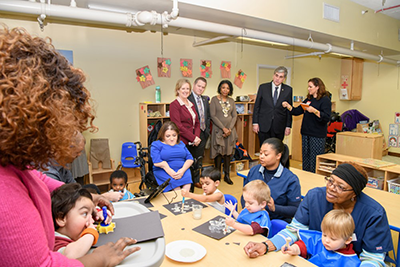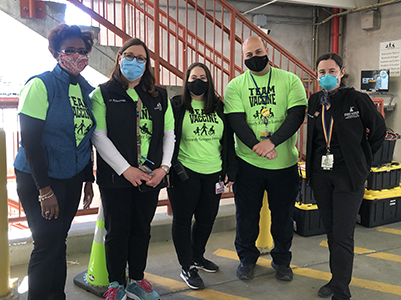Partners
The Association of University Centers on Disabilities (AUCD) is a national association that supports Network members in their research, training, education, and service so that together, AUCD and Network members can promote the quality of life, health, and well-being of people with disabilities. Thanks to vital support from our federal and collaborating partners, AUCD and its Network members can continue advancing the shared mission across every state and territory.










